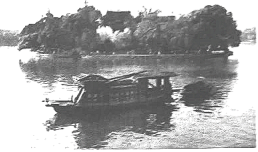请阅读下面短文,根据短文内容从每小题所给的A、B、C、D四个选项中选出最佳选项。
Scientists have long predicted that warmer temperatures caused by climate(气候)change will have the biggest influence on the world's poorest people. New research now suggests that has already happened over the past years.
A study coming out in the Proceedings of the National Academy of Science found that in most poor countries, higher temperatures are more than 90% likely to have resulted in a fall in economic output(经济产量), compared to a world without global(全球的)warming. The influence has been less big in richer countries—with some even benefiting(获益) from higher temperatures.
"We're not saying that global warming created inequality(不公平)," says Noah S. Diffenbaugh, the writer of the study and a professor at Stanford University who studies climate change. But "global warming has slowed down the improvement". The poorest countries are facing the worst influence of rising temperatures—for which they are least responsible, he adds.
The new study builds on past research. A 2015 study in the journal Nature predicted that the average income(平均收入)) in the poorest countries will be 25% lower by 2100 compared to a world without warming, while some of the richest countries—like the USA—could experience an increase in income. And a report from IPCC, the UN's climate science body, showed that if global temperatures rise more than 1.5℃ by the end of the century, poor countries will likely face very serious challenges, including the disappearance of whole communities and millions of early deaths. "They will suffer the most, as they are already," said Mary Robinson, who used to be a UN Special Envoy on Climate Change and a president of Ireland.
The influence is greater elsewhere, especially in Sub-Saharan, African countries including Sudan, Burkina Faso and Niger, where climate change has driven the average income more than 20% lower. "There are a number of ways by which temperature influences economic activities," says Diffenbaugh What's clear is that, for poor countries, the news is all bad.


